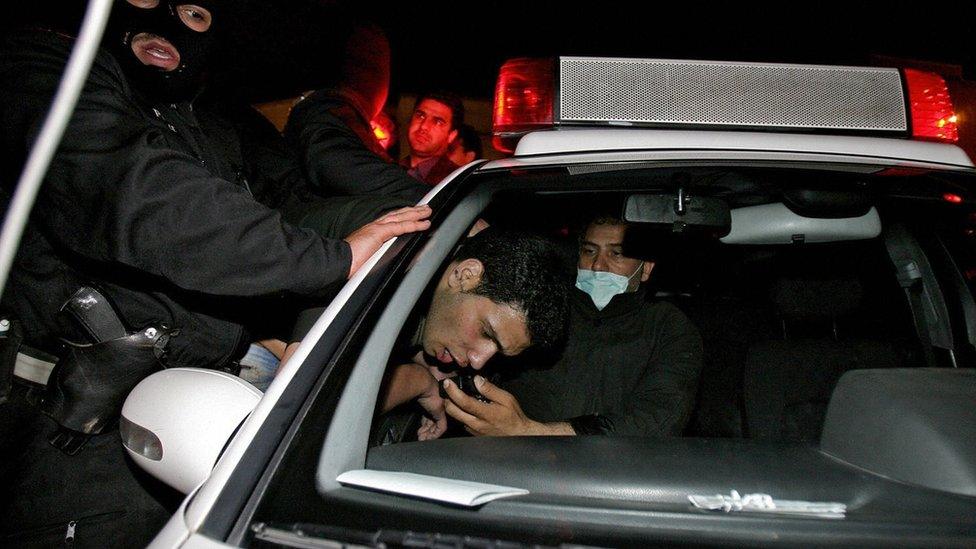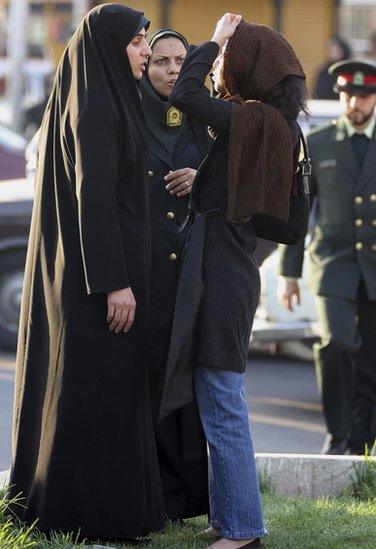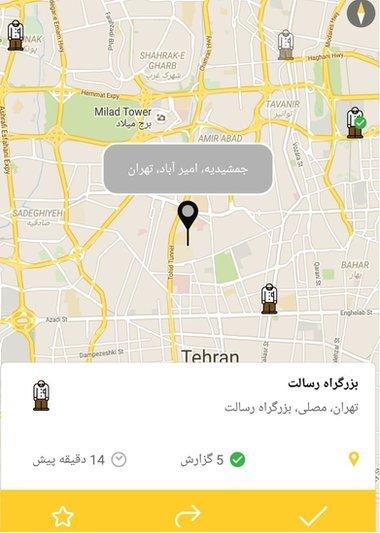Iranians vent anger at new police morality unit
- Published

Critics say the extra officers are a waste of police resources
Outraged Iranians have taken to social media to condemn the decision to deploy 7,000 undercover police officers in Tehran to monitor the observance of the Islamic dress code.
Tehran's police chief announced on Monday that the role of the new unit is to:
Report women for the improper wearing of the hijab (and to ensure a woman's veil covers her in public as required)
Report anyone who harasses women
Report anyone who plays loud music in their cars and violates traffic rules
The morality police have been around for decades but the size of the new unit has taken many by surprise. The unit also includes female officers.
"Even KGB did not have 7,000 spies across the world, external" tweeted @big_loti (6,206 followers).
The 7,000 officers will look out for violations of the above offences and text details of the incidents to the morality police to follow up. The subsequent warning could be verbal - or lead to arrests and fines.
'Waste of resources'
Social media users have scoffed at this "tragic waste of human resources" and what they consider to be ill-placed priorities.
Many posts mention that enforcement resources should be spent on more pressing issues like fighting persistent corruption and bribery.

Some of the undercover officers are women
Some women fear that it could even backfire and lead to further pestering from strangers. In the past, vigilantes linked to the paramilitary forces of Basij, have sometimes carried out street patrols to enforce hijab and prevent "un-Islamic" behaviour.
Twitter user @mahbu000be (7,268 followers) said: This "means that anyone will be able to claim to be member of the morality police from tomorrow to start disturbing women and children, external" on the streets.
It's "meant to frighten people, external" said Facebook user "Mitra Mirzaee". They want to create the feeling that people "are constantly being watched" and they also want to "increase distrust among people" and to occupy them with "some worthless things in order to prevent them from focusing on the major existing problems".
Why fear women so much I wonder, said Facebook user "Judith Sugden-Smith". The 7,000 "could be employed in constructive, productive jobs beneficial to society, external."
"We wish they hired 700 people (10% of the 7,000) to fight against the widespread problems of corruption, bribery and smuggling said a post on the popular Facebook page, "My Stealthy Freedom". The page advocates an end to compulsory hijab.
"Solve economic problems. People won't have time for wandering around when they have jobs. No-one will steal or will be selling themselves into prostitution when they are not starving," Facebook user "Navid Salimi" suggested, external.
Trends
Earlier in February, an anonymous team of Iranian app developers came up with a solution to help young fashion conscious Iranians avoid the morality police with a phone app called "Gershad".
The app allows users to "report" the location where morality police are patrolling and warn unwary passers-by.

An app can track police and warn unsuspecting morality offenders
The creators said they were fed up with being "humiliated" for what they wear. The latest announcement on the hijab has fuelled further irritation.
"I cannot believe how far they can go to make people miserable, external," tweeted user @SadafHafezy.
One message of support for the new unit came from user "Kiyan Aylia". The user called on the morality police to "arrest these ladies without hijab and also their husbands because they are supporting them". Then "clean my Iran of these [people] by sending them in exile to the West. Let them enjoy their life there," Kiyan Aylia said.
BBC Monitoring reports and analyses news from TV, radio, web and print media around the world. You can follow BBC Monitoring on Twitter, external and Facebook, external.
- Published14 October 2024
